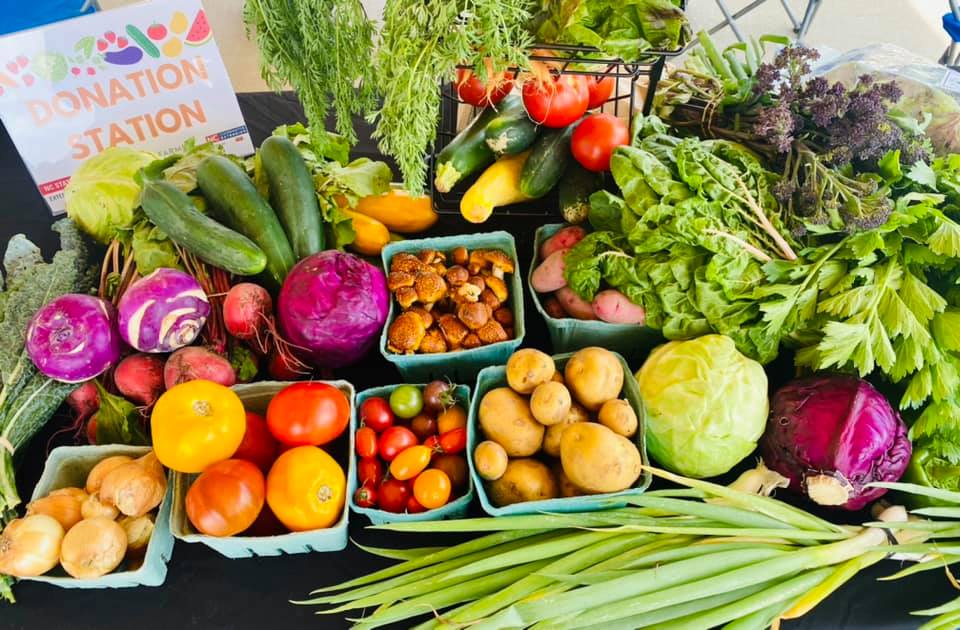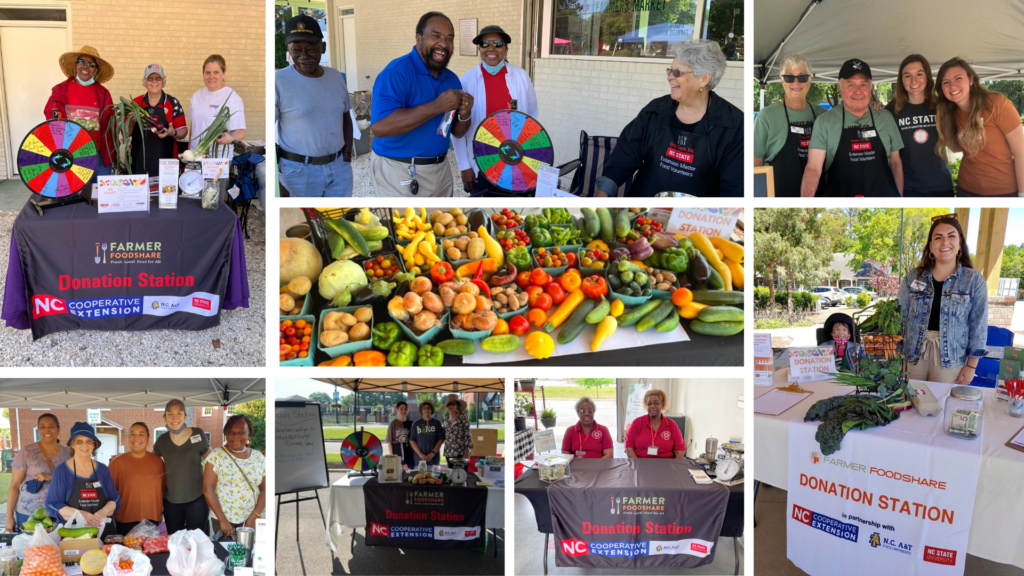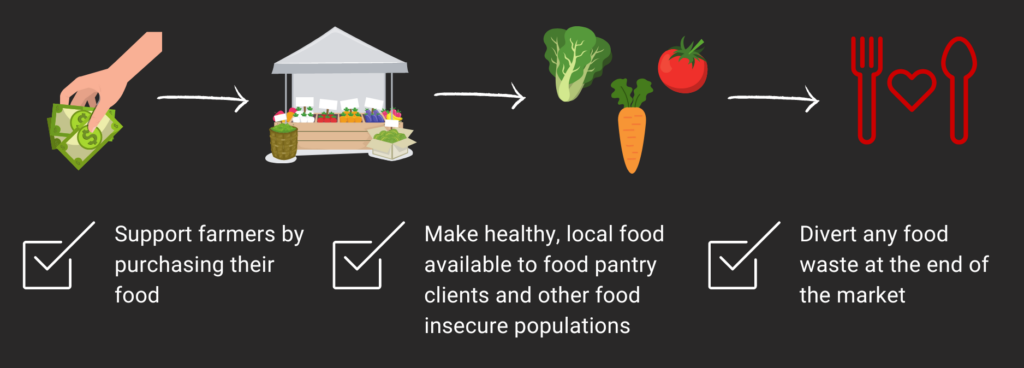Donation Station @ the Leroy James Farmers Market
go.ncsu.edu/readext?940589
en Español / em Português
El inglés es el idioma de control de esta página. En la medida en que haya algún conflicto entre la traducción al inglés y la traducción, el inglés prevalece.
Al hacer clic en el enlace de traducción se activa un servicio de traducción gratuito para convertir la página al español. Al igual que con cualquier traducción por Internet, la conversión no es sensible al contexto y puede que no traduzca el texto en su significado original. NC State Extension no garantiza la exactitud del texto traducido. Por favor, tenga en cuenta que algunas aplicaciones y/o servicios pueden no funcionar como se espera cuando se traducen.
Português
Inglês é o idioma de controle desta página. Na medida que haja algum conflito entre o texto original em Inglês e a tradução, o Inglês prevalece.
Ao clicar no link de tradução, um serviço gratuito de tradução será ativado para converter a página para o Português. Como em qualquer tradução pela internet, a conversão não é sensivel ao contexto e pode não ocorrer a tradução para o significado orginal. O serviço de Extensão da Carolina do Norte (NC State Extension) não garante a exatidão do texto traduzido. Por favor, observe que algumas funções ou serviços podem não funcionar como esperado após a tradução.
English
English is the controlling language of this page. To the extent there is any conflict between the English text and the translation, English controls.
Clicking on the translation link activates a free translation service to convert the page to Spanish. As with any Internet translation, the conversion is not context-sensitive and may not translate the text to its original meaning. NC State Extension does not guarantee the accuracy of the translated text. Please note that some applications and/or services may not function as expected when translated.
Collapse ▲The N.C. Cooperative Extension of Pitt County is hosting a Donation Station at the Leroy James Farmers Market on the last Saturday of the month June-September 2023.
What is Donation Station?
Donation Stations seek to improve access to fresh, locally-grown food while supporting the farmers who grow it. They are designed to combat local food insecurity while raising awareness that a healthy local food system must include every member of the community. This is where you come in!
Volunteers run tables at farmers markets. Donation Stations use a simple farmers market-based approach where shoppers and farmers’ market vendors help by choosing to donate fresh food they buy at the market or by donating cash to buy food from the farmers. All the fresh food that is donated is then shared with local agencies serving those in our community who are in need. Family & Consumer Sciences Agents and their EMFVs are working to run these Donation Stations at farmers markets across North Carolina.
Donation Stations are a collaboration between N.C. Cooperative Extension’s Local Food Program Team, Farmer Foodshare, and the Extension Master Food Volunteer (EMFV) Program.

This incredibly successful effort has allowed fresh food to flow locally and has fostered strong community engagement. Funding for the program has come from the EMFV Program and the Local Food Program Team.
How You Can Volunteer!
For more information on how you can donate, volunteer at the Donation Station booth, or for any other questions contact Taneisha Armstrong, Family & Consumer Science Agent, taneisha_armstrong@ncsu.edu, or call our office 252-902-1709.
Donation Stations Across the State!
Why should you support it?
• All donations stay local to the market and your community
• Donation Stations are completely volunteer run, meaning there are no overhead fees for this program
• Farmers and farmers markets gain positive public awareness through community and media outreach
• It’s a win for everyone – farmers get what their produce is worth, community members most at need get fresh, local produce that they might not otherwise be able to access
Available Resources:
Program Brief for General Stakeholders





